Discover the Women of the Hall
These are the Inductees of the National Women’s Hall of Fame. Select any of the women to discover their stories and learn how they have influenced other women and this country.
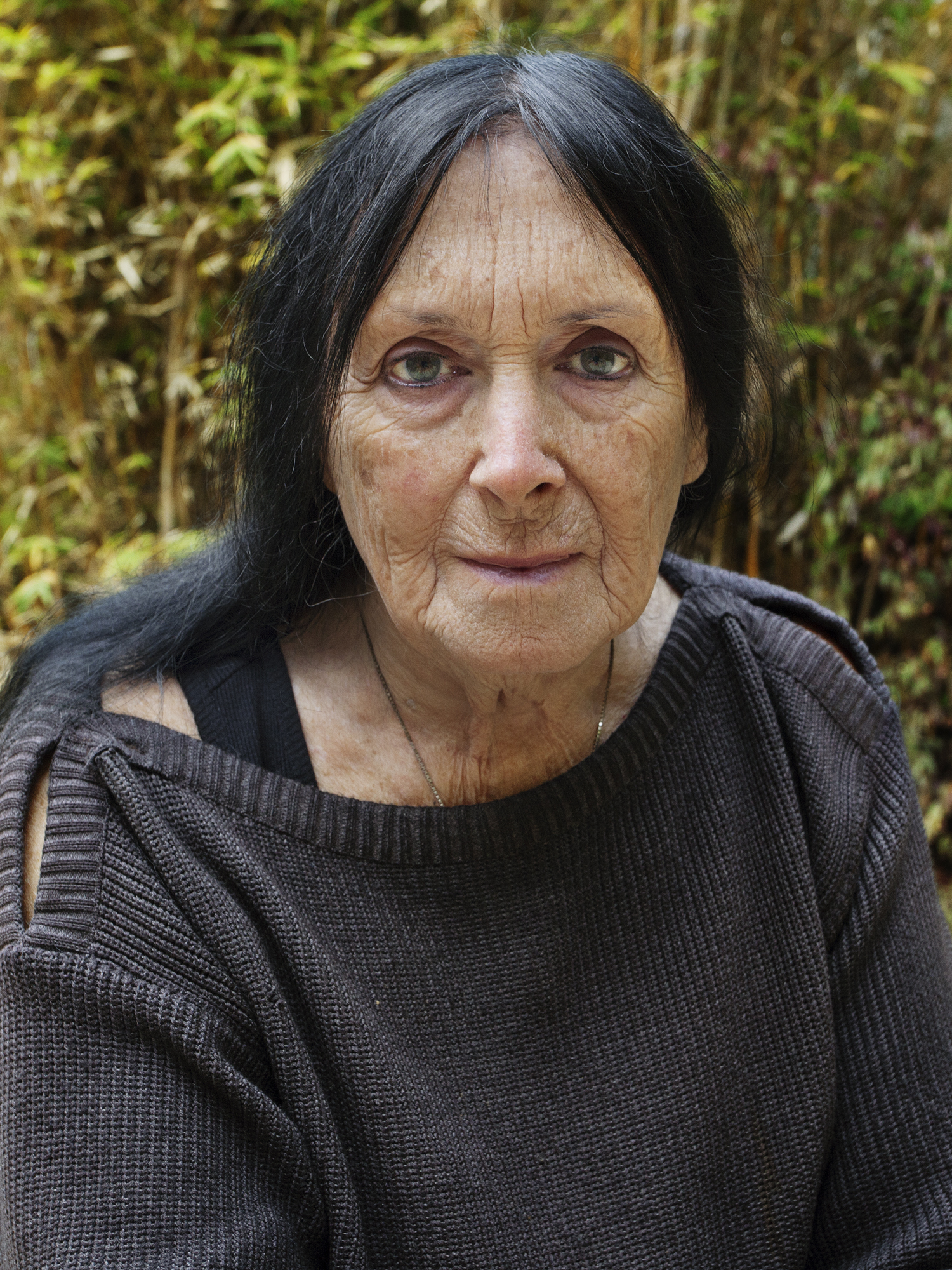 Allucquére Rosanne Stone
Arts, Education, Humanities
1936
New Jersey
2024
Allucquére Rosanne Stone
Arts, Education, Humanities
1936
New Jersey
2024

Allucquére Rosanne Stone
Allucquére Rosanne Stone, also known as Sandy Stone, is an academic, media theorist, artist, audio engineer, and computer programmer. A founder of the academic discipline of transgender studies, Stone’s trailblazing work created space for trans scholars to unfold the vast spectrum of gender.
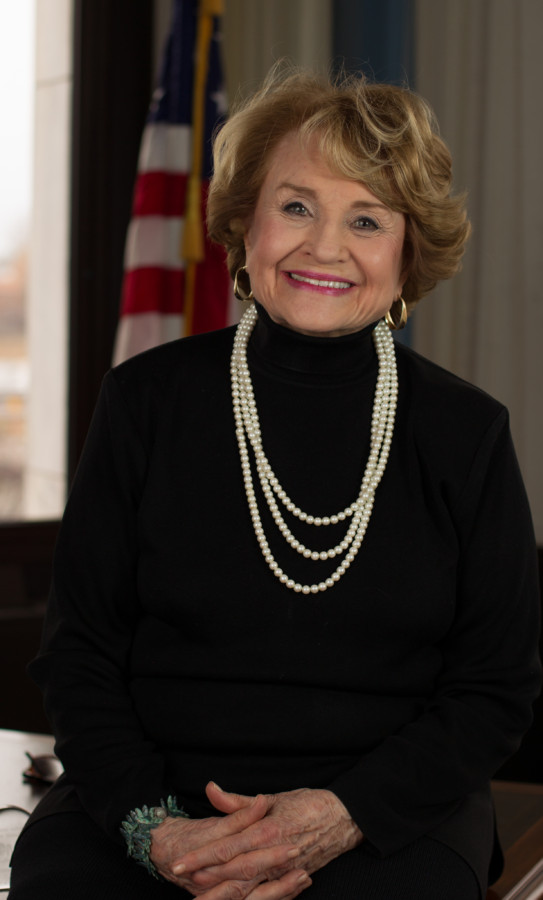 Louise Slaughter
Education, Government
1929
2019
Louise Slaughter
Education, Government
1929
2019

Louise Slaughter
A prominent advocate for women and POC, Louise Slaughter was a member of Congress for over 30 years. One of the longest-serving women in the House of Representatives, Slaughter was the first chairwoman of the House Rules Committee and the co-chair and founding member of the Congressional Pro-Choice Caucus, which works to promote reproductive health and protect a woman’s right to choose. Slaughter also established the Office of Research on Women’s Health and secured the first $500 million in federal funding for breast cancer research at the NIH, and she co-authored the landmark Violence Against Women Act, which has reduced cases of domestic violence by 67% since 1994. Representing upstate New York in Congress for decades, Slaughter was a scientist-turned-politician, a local and national leader whose work for women and for all Americans continues to shape our lives.
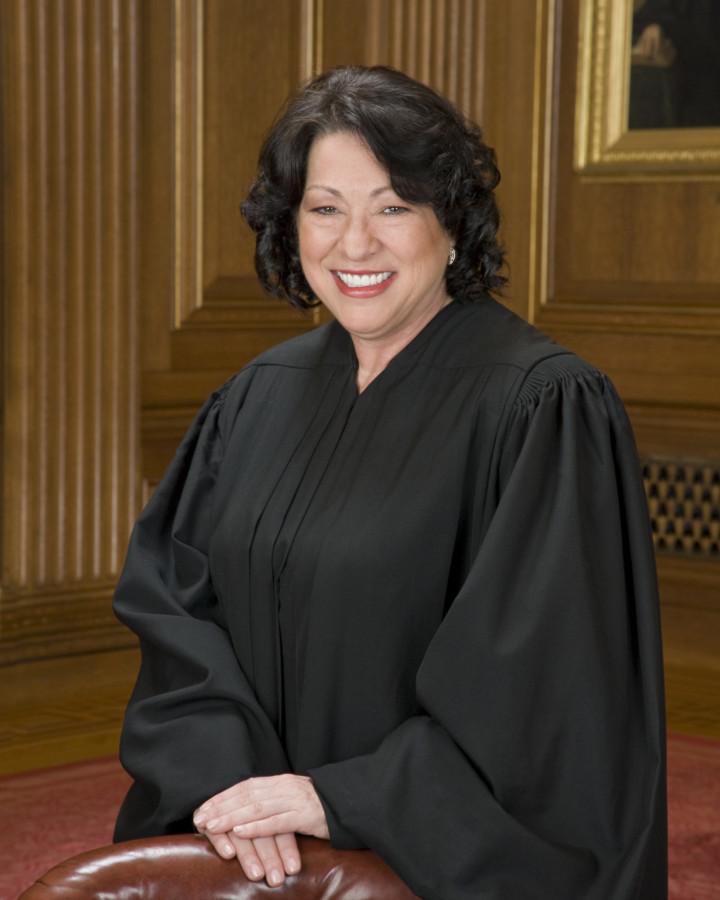 Sonia Sotomayor
Education, Government
1954
2019
Sonia Sotomayor
Education, Government
1954
2019

Sonia Sotomayor
Sonia Sotomayor is an Associate Justice of the Supreme Court of the United States, appointed by President Barack Obama in 2009 after leadership as an assistant district attorney, in private practice and across a distinguished judicial career. She is the third woman to be appointed to the Supreme Court and the first Hispanic and Latina Justice in the Court’s 230 years. A graduate of Princeton and Yale Law School, Sotomayor’s experiences as one of few Latinas at these institutions led her to advocate for inclusion on campuses, foreshadowing her focus on public service across her career. During her tenure on the Supreme Court, Sotomayor has been reputed for her work concerning the rights of defendants, calls for reform of the criminal justice system, and attention to issues of race, gender and ethnic identity. Justice Sotomayor is also an author, including of “My Beloved World/Mi Mundo Adorado,” “A Judge Grows in the Bronx/La juez que creció en el Bronx” and “Turning pages/Pasando Páginas.” A recipient of the Katherine Hepburn Award from Bryn Mawr College honoring women who change the world, Sotomayor has also received multiple honorary degrees, including from her alma mater Princeton University.
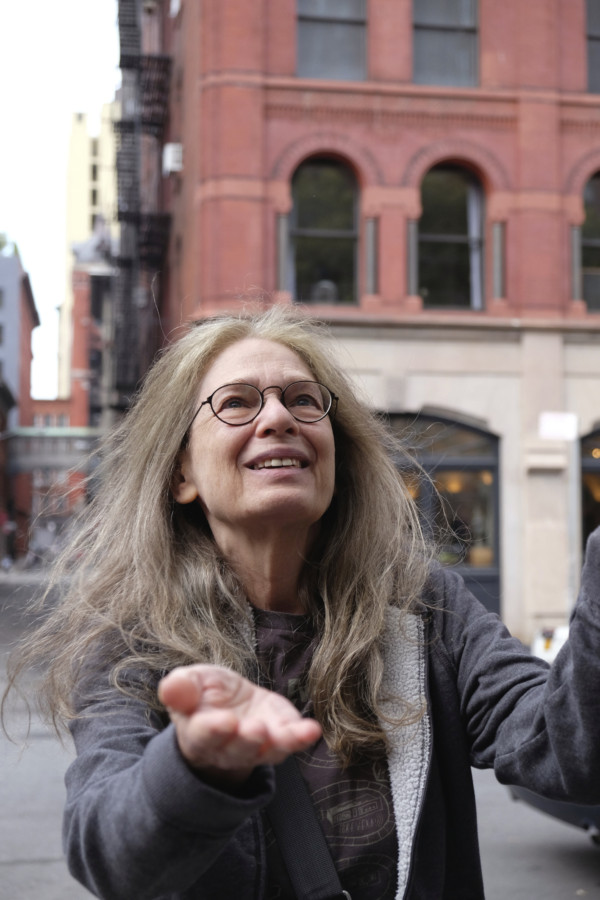 Laurie Spiegel
Arts
1945
2019
Laurie Spiegel
Arts
1945
2019

Laurie Spiegel
A composer whose work appears on NASA’s “Golden Record,” (shipped out on the Voyager spacecraft) Laurie Spiegel is known worldwide for her pioneering work with early electronic and computer music systems. A cutting-edge thinker, her experience with early analogue electronic music systems led Spiegel to innovate musically and instrumentally. She has focused largely on interactive software that uses algorithmic logic as a supplement to human abilities, thereby expanding access to creative expression for a far greater number of people than was previously allowed through traditional methods of musical training. The aesthetics of musical structure and cognitive processes have also been a focus of Spiegel’s work. Spiegel’s work has been re-issued, having appeared in the popular Hunger Games movies, highlighted in the 2018 BBC Proms, and featured in various museum settings where the intersection of electronic music compositions, the machines and software used to create those compositions, and the visual arts have come together in harmony.
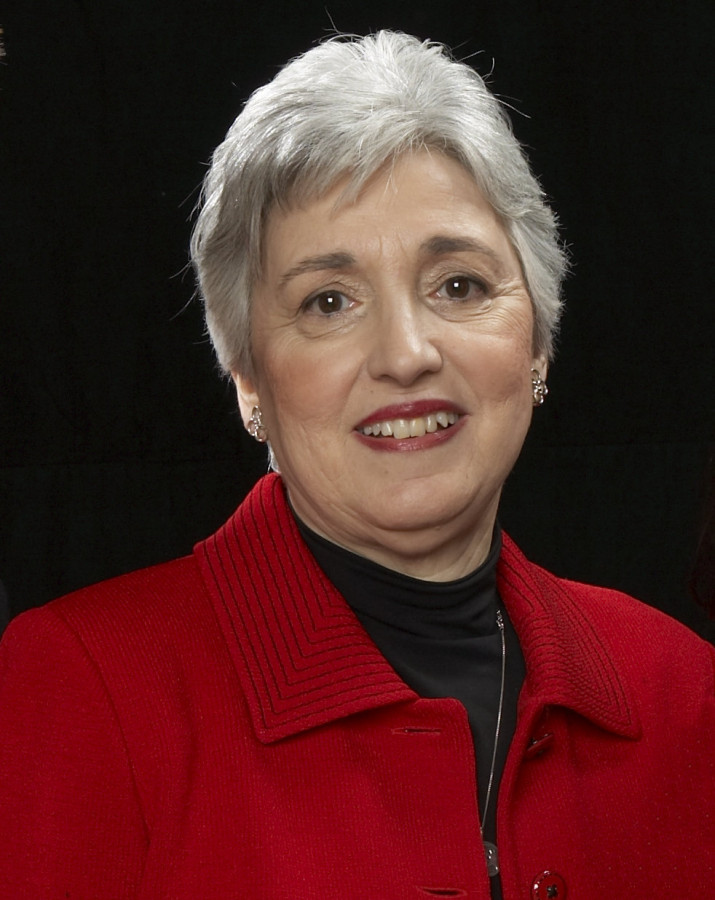 Eleanor Smeal
Humanities
1939
Ohio
2015
Eleanor Smeal
Humanities
1939
Ohio
2015

Eleanor Smeal
Her life and work has been dedicated to the achievement of women’s equality and human rights. She has been at the forefront of nearly every significant women’s rights victory. Responsible for coining the phrase “gender gap” referring to the difference in the way women and men vote and popularizing its usage in election and polling analyses to enhance women’s voting clout.
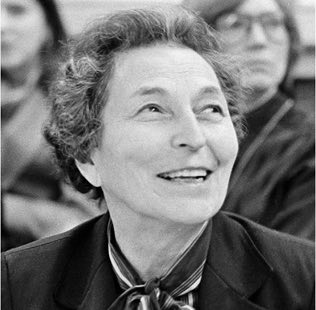 Anna Jacobson Schwartz
Business
1915
New York
2013
Anna Jacobson Schwartz
Business
1915
New York
2013

Anna Jacobson Schwartz
Perhaps the most widely acclaimed female research economist of the twentieth century, Anna Jacobson Schwartz has been described as “one of the world’s greatest monetary scholars.” In 1941, after a five year career with Columbia University’s Social Science Research Council, Schwartz began her more than seventy year tenure working for the National Bureau of Economic Research. During her time at the National Bureau, Schwartz met and began working with Milton Friedman and together, the two coauthored A Monetary History of the United States, 1867 – 1960. Described by Federal Reserve chairman, Ben Bernanke, as “the leading and most persuasive explanation of the worst economic disaster in American history,” the text is one of the most widely cited in economics. Schwartz was also considered a leading financial historian and expert on monetary statistics in the United States and Britain.
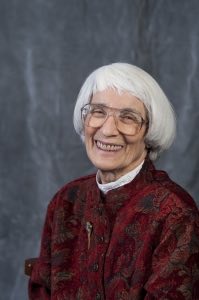 Bernice Resnick Sandler
Education, Humanities
1928
New York
2013
Bernice Resnick Sandler
Education, Humanities
1928
New York
2013

Bernice Resnick Sandler
For more than forty years, Bernice Resnick Sandler has been a tireless advocate of educational equity for women and girls. In 1970, Sandler filed the first charges of sex discrimination against 250 educational institutions. It was this strategy that led to the first federal investigations of campus sex discrimination at a time when no laws existed to prohibit discrimination based on sex in education. Subsequently, Sandler was instrumental in the development, passage and implementation of Title IX, the legislation that prohibits discrimination on the basis of sex in any federally funded education program or activity. An expert in strategies and policies to prevent and respond to sex discrimination in higher education, Sandler has given more than 2,500 presentations. She currently serves as a Senior Scholar in Residence at the Women’s Research and Education Institute in Washington, DC.
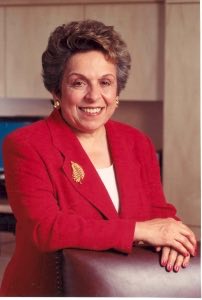 Donna E. Shalala
Education, Government
1941
Ohio
2011
Donna E. Shalala
Education, Government
1941
Ohio
2011

Donna E. Shalala
A groundbreaking educator and politician, Dr. Donna Shalala has more than thirty years of experience as an accomplished scholar, teacher and administrator. Dr. Shalala is recognized as the longest serving United States Secretary of Health and Human Services (1993-2001) and is the current President of the University of Miami. From 1980-1987, Dr. Shalala served as the president of Hunter College, and from 1987-1993, she was the chancellor of the University of Wisconsin-Madison. Dr. Shalala is the recipient of more than three dozen honorary degrees and was awarded the Presidential Medal of Freedom in 2008.
 Kathrine Switzer
Athletics
1947
Germany
2011
Kathrine Switzer
Athletics
1947
Germany
2011

Kathrine Switzer
As the first woman to officially enter the Boston Marathon (1967), Kathrine Switzer broke the gender barrier and paved the way for women in running. Still recognized as a leader in the running world, Switzer has completed over thirty-seven marathons and has dedicated her career to creating opportunities and equal sport status for women. In 1977, she founded the Avon International Running Circuit, and in 1984, she was a leader in making the women’s marathon an official event in the Olympic Games. Switzer is an Emmy Award-winning television commentator who has broadcasted for ABC, CBS, NBC and ESPN.
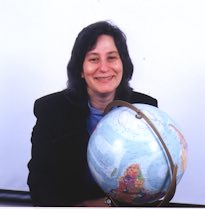 Susan Solomon
Science
1956
Illinois
2009
Susan Solomon
Science
1956
Illinois
2009

Susan Solomon
An internationally recognized leader in the field of atmospheric science, Susan Solomon pioneered the theory explaining how and why the ozone hole occurs in Antarctica, and obtained some of the first chemical measurements that established man-made chlorofluorocarbons (CFCs) as its cause. Solomon is the recipient of numerous awards, including the 1999 National Medal of Science and the Asahi Foundation of Japan’s Blue Planet Prize in 2004. From 2002-2008, Solomon served as the co-chair of the Intergovernmental Panel on Climate Change (IPCC), which shared the Nobel Peace Prize with Albert Gore, Jr. in 2007. Solomon’s current research as a senior scientist with the National Oceanic Atmospheric Administration focuses on climate change, ozone depletion and the links between the two.
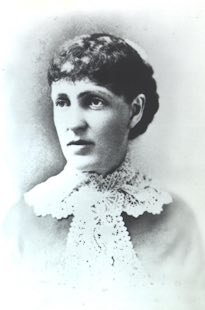 Kate Stoneman
Government
1841
New York
2009
Kate Stoneman
Government
1841
New York
2009

Kate Stoneman
Kate Stoneman was the first woman admitted to practice law in New York State. In 1885, she became the first female to pass the New York State Bar Exam, but her 1886 application to join the bar was rejected because of her gender. Stoneman immediately launched a lobbying campaign to amend the Code of Civil Procedure to permit the admission of qualified applicants without regard to sex or race, and was successfully admitted to the bar later the same month. In 1898, she became the first female graduate of Albany Law School, and was the first woman to receive a bachelor’s degree from any department of Union University.
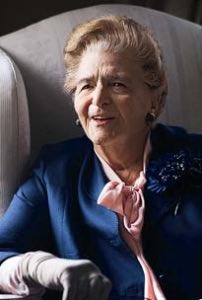 Catherine Filene Shouse
Arts, Philanthropy
1896
Massachusetts
2007
Catherine Filene Shouse
Arts, Philanthropy
1896
Massachusetts
2007

Catherine Filene Shouse
Known for her visionary work in education, arts, politics and women’s affairs, Catherine Filene Shouse was the first woman to receive a Masters Degree in Education from Harvard University and the first woman appointed to the Democratic National Committee in 1919. Ten years later, she launched the Institute for Women’s Professional Relations. An ardent supporter of the arts and arts education, Catherine Filene Shouse founded and was the major benefactor of the Wolf Trap National Park for the Performing Arts in Vienna, Virginia – the first and only national park dedicated to the performing arts. She was awarded the Presidential Medal of Freedom by President Gerald R. Ford in 1977.
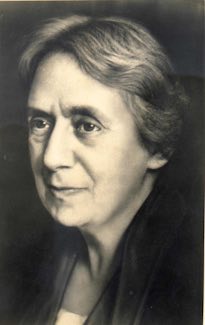 Henrietta Szold
Humanities
1860
Maryland
2007
Henrietta Szold
Humanities
1860
Maryland
2007

Henrietta Szold
The daughter of Hungarian immigrants, educator and social pioneer Henrietta Szold was an important figure in both American and Jewish history. In 1889, she opened a night school to educate immigrants in English and civics, creating a model for other night schools and immigrant education programs. Her groundbreaking work in the American Jewish community continued with her founding of Hadassah, the Women’s Zionist Organization of America, in 1912. Ms. Szold moved to pre-state Israel in 1920, continuing her work with the American Zionist Medical Unit, which she organized in 1918.
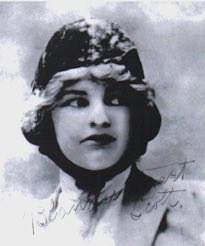 Blanche Stuart Scott
Science
1889
New York
2005
Blanche Stuart Scott
Science
1889
New York
2005

Blanche Stuart Scott
Born in Rochester, New York, Scott was a pioneering aviatrix, becoming the first American woman to take a solo hop into the air, although her flight is not regarded as official. In 1910, she became one of the first woman to drive an automobile coast to coast in her car – the ‚”Lady Overland”. Scott was also the first and only woman to take flying lessons from Glenn Curtiss, later flying with the Curtiss Exhibition Team and earning the nickname ‚”Tomboy of the Air”.
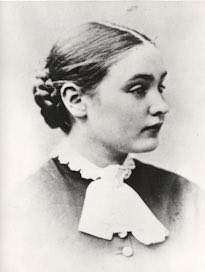 Anne Sullivan
Education
1866
Massachusetts
2003
Anne Sullivan
Education
1866
Massachusetts
2003

Anne Sullivan
Best known as the woman who taught Helen Keller to read, write and minimally speak, Anne Sullivan lost her own sight to trachoma at an early age. She went on to graduate from Perkins School for the Blind in Boston and eventually receive medical treatment that restored her sight. Both Sullivan and Keller became role models for thousands of physically challenged people around the world.
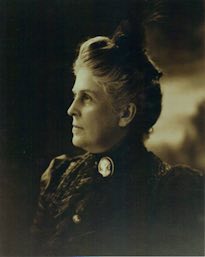 Harriet Williams Russell Strong
Business
1844
New York
2001
Harriet Williams Russell Strong
Business
1844
New York
2001

Harriet Williams Russell Strong
An inventor of water-conservation techniques, she was also a very successful businesswoman. Her water irrigation systems are credited with being one of the factors in the development of southern California as a major agricultural region.
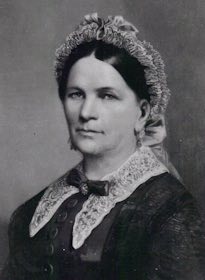 Sophia Smith
Education, Philanthropy
1796
Massachusetts
2000
Sophia Smith
Education, Philanthropy
1796
Massachusetts
2000

Sophia Smith
Born to a family known for its frugality and thrift, she was left at the age of 65 as the sole survivor of her immediate family, and with the funds to endow the establishment of Smith College, an institution that she hoped would provide undergraduate education for young women equal to that provided at the time for young men.
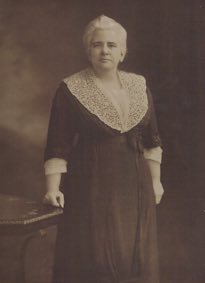 Anna Howard Shaw
Humanities
1847
England
2000
Anna Howard Shaw
Humanities
1847
England
2000

Anna Howard Shaw
A leader in the women’s suffrage movement, Shaw was a master orator for social justice, and the first woman to be ordained by the Protestant Methodist Church. She was the first living American woman to be awarded the U.S. Distinguished Service Medal.
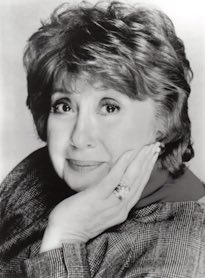 Beverly Sills
Arts
1929
New York
1998
Beverly Sills
Arts
1929
New York
1998

Beverly Sills
Acclaimed Soprano who became the first woman General Director and then President of the New York City Opera, and later first woman chair of the Lincoln Center for the Performing Arts, guiding the Center to become one of the nation’s most important institutions. She was not only directly responsible for the discovery and launch of many young performers, but was also actively involved in a myriad of humane works, including the National Victim Center and (as National Chair) the March of Dimes Mothers March on Birth Defects.
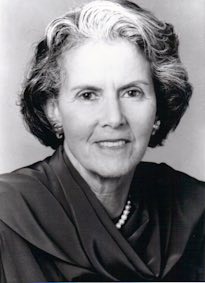 Felice N. Schwartz
Business
1925
New York
1998
Felice N. Schwartz
Business
1925
New York
1998

Felice N. Schwartz
Founder in 1962 of Catalyst, the premier organization working with corporations to foster women’s leadership. She published studies (Women in Corporate Leadership in 1990 and Women in Engineering in 1992) illustrating the barriers to women’s workplace progress and then provided samples of model corporate practices to help women advance. Her work has had a lasting impact on the composition of American corporate leadership.
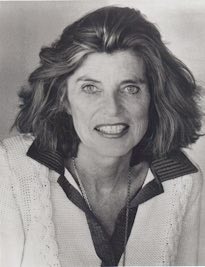 Eunice Kennedy Shriver
Humanities
1921
Massachusetts
1998
Eunice Kennedy Shriver
Humanities
1921
Massachusetts
1998

Eunice Kennedy Shriver
For more than thirty years, Eunice Kennedy Shriver served as a leader in the worldwide struggle to enhance the lives of people with intellectual disabilities. Under her leadership, the Joseph P. Kennedy, Jr. Foundation aided in the creation of The President’s Committee on Mental Retardation (1961) and the development of the National Institute for Child Health and Human Development (1962). Shriver is credited as the founder of the Special Olympics, an organization that today serves 3 million people with intellectual disabilities in nearly 200 nations around the world.
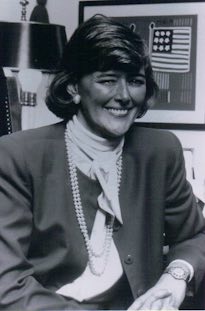 Patricia Schroeder
Government
1940
1995
Patricia Schroeder
Government
1940
1995

Patricia Schroeder
Served as the senior woman in Congress, first elected in 1972 from Colorado. Schroeder worked to establish a national pro-family policy, promoting issues such as parental leave, child care and family planning.
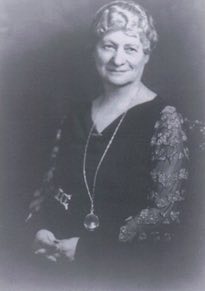 Hannah Greenebaum Solomon
Humanities
1858
Illinois
1995
Hannah Greenebaum Solomon
Humanities
1858
Illinois
1995

Hannah Greenebaum Solomon
Club woman and welfare worker on matters relating to child welfare, she organized a nationwide Jewish Women’s Congress as part of the 1890’s World’s Fair. It later became the National Council of Jewish Women, to which she was elected its first president.
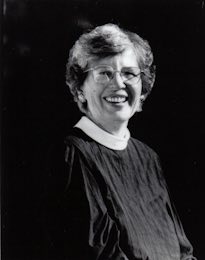 Betty Bone Schiess
Humanities
1923
Ohio
1994
Betty Bone Schiess
Humanities
1923
Ohio
1994

Betty Bone Schiess
Religious leader. Schiess led the successful effort in 1974 to have women ordained as priests in the Episcopal Church in America, elevating the position of women in the Episcopal Church at all levels.
